Pig farming is an important part of Nigerian agriculture. It is a source of food, income, and employment for small-scale farmers. Pigs are also a source of manure, which is important for crop production. Pig farming in Nigeria has been practiced for centuries. However, it has only recently become commercialized. In the past, subsistence farmers raised most pigs for their consumption.
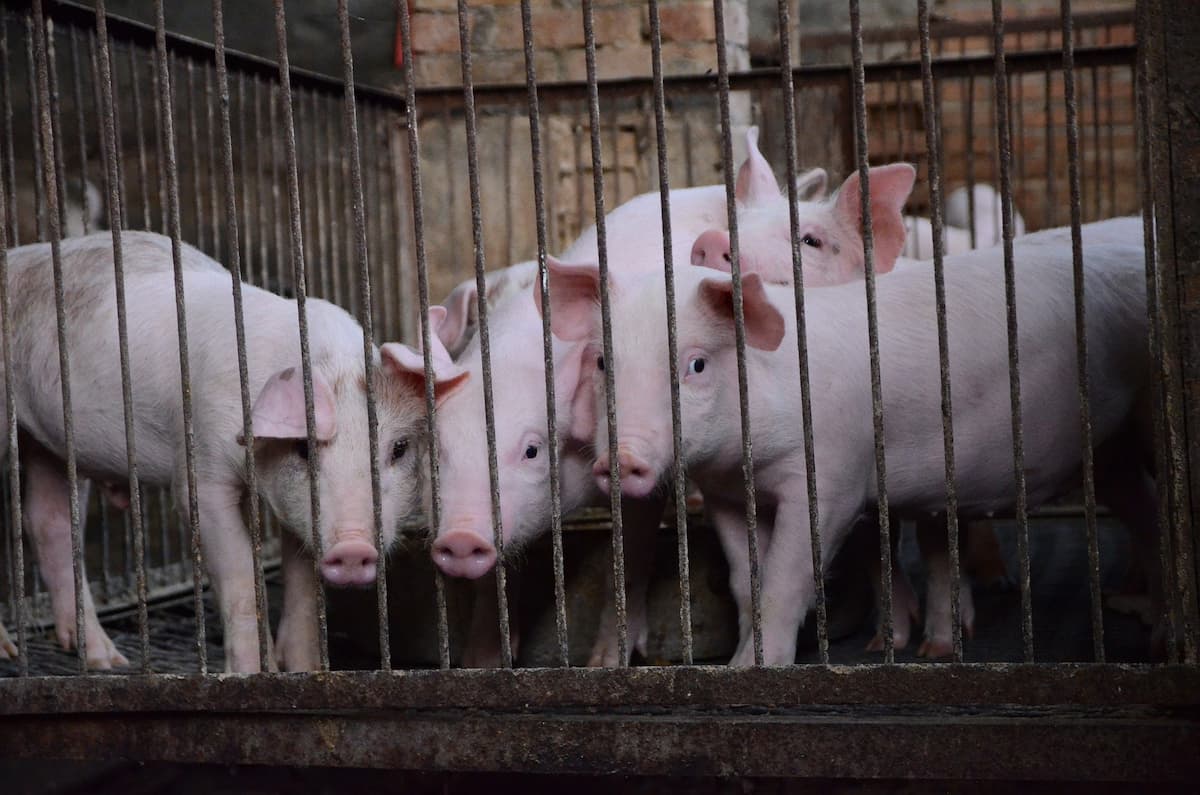
How to start pig farming in Nigeria
What is pig farming in Nigeria?
Pig farming in Nigeria is a relatively new industry that has recently grown in popularity. Nigeria is a large country with a population of over 170 million people, and there is a growing demand for pork products. Pig farming offers an opportunity for small-scale farmers to enter the livestock market and meet this demand.
Pigs are easy to care for and require less land than other livestock animals. Pigs can be fed various food scraps and agricultural by-products, making them an ideal animals for small-scale farmers who may not have access to expensive feed. Pigs also reproduce quickly, meaning that farmers can achieve a good return on their investment within a short period.
Pig farming importance in Nigeria
Pigs also play a role in the country’s economy by providing a source of currency. Pigs are an important source of food in Nigeria. Pork is the popular meat in the country, and pigs are the main source of this meat. Pigs are also a major source of income for small-scale farmers. Pig farming is the most lucrative business in Nigeria.
Pigs also play a role in the country’s economy by providing a source of currency. In addition to their economic importance, pigs also help to maintain environmental balance and provide a valuable source of fertilizer. Pigs eat various plants and roots, which helps keep vegetation under control. They also deposit their waste on farmland, which enriches the soil and helps crops to grow better.
In case you missed it: How to Start Pig Farming in Brazil: Business Plan, Cost, Profits, Breeds, Care, and Management
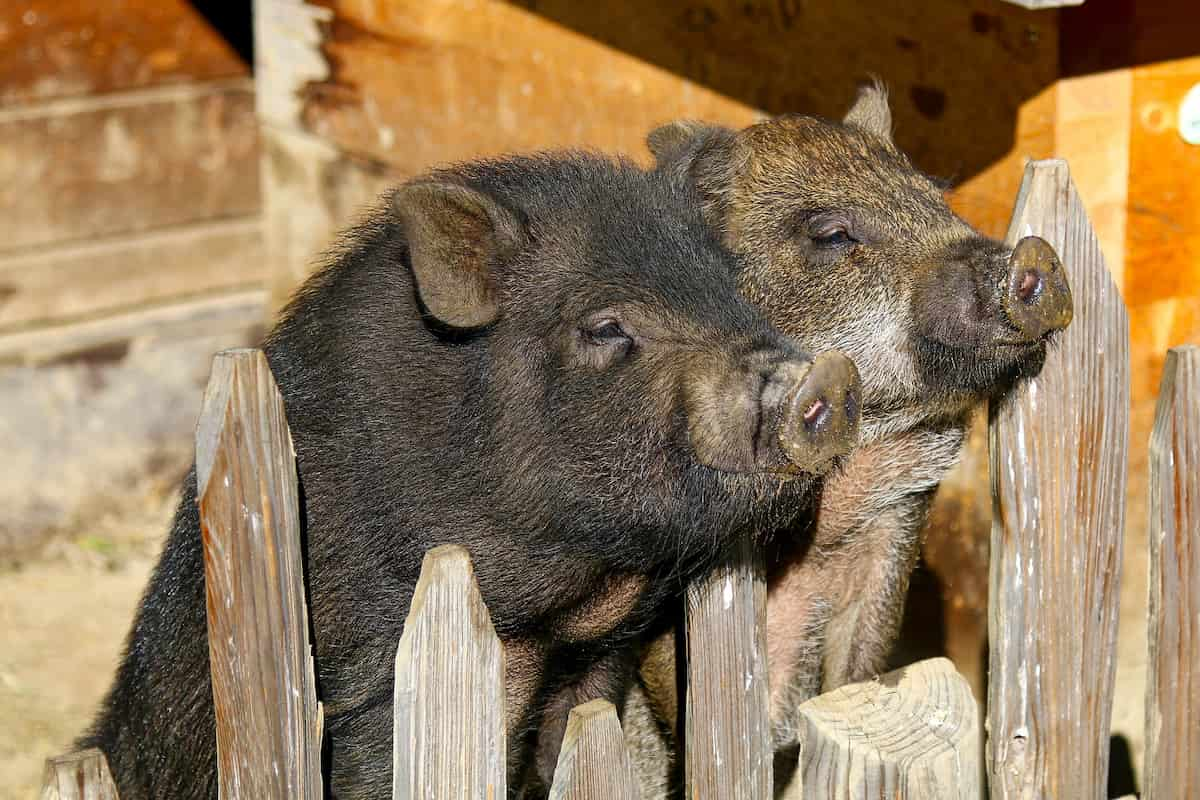
Requirements for pig farming in Nigeria
- Pig farming in Nigeria can be very lucrative, but some requirements must be met to succeed. First, you must have a suitable location for your farm. The climate in Nigeria is tropical, so the farm must be located in an area with good drainage and plenty of ventilation.
- Next, you will need to acquire some pigs. There are many different breeds of pigs, so you should consult a local expert to see which type would be best for your farm. Once you have your pigs, you will need to provide them with food, shelter, and water. You will also need to build a fence around the property’s perimeter to keep the pigs from escaping.
- Pigs require a lot of food, so you will need to purchase or grow a variety of grains and vegetables to feed them. It is also important to provide them with access to clean water at all times.
- Finally, you will need to have the proper vaccinations for your pigs. This is important to prevent diseases from spreading among the animals and humans that come into contact with them.
Which breed of Pig is most profitable in Nigeria?
Nigeria’s most common pig breeds are the Yorkshire, Danish Landrace, Landrace, American Yorkshire, Hampshire, and Duroc breeds and their crosses. When choosing a breed for your farm, it is important to consider your specific goals and production requirements. With so many options available, you are sure to find a breed that will suit your needs perfectly.
How to start a pig farm in Nigeria?
Choose a good location
The location of your farm is important for two reasons. Firstly, pigs require a lot of space, so you will need to find a large enough property to accommodate your herd. Second, the location should have good access to water and other resources that your pigs will need.
Develop a business plan
It is essential for any successful business venture. This document will outline your goals, strategies, and financial projections. It will also help you secure funding from investors if needed.
Build proper housing
Pigs must be housed in clean and spacious conditions. Make sure to build large enough pens for the animals to move around freely and access fresh air and sunlight.
Buy quality breeding stock
It is important to start with high-quality breeding stock to produce healthy pigs that will fetch good prices in the market. Work with reputable breeders and purchase animals that come from healthy lines.
Implement proper husbandry practices
Good husbandry practices are essential for keeping your pigs healthy and productive. These include providing a clean and comfortable environment and feeding them a balanced diet.
In case you missed it: How to Start Pig Farming from Scratch: A Complete Guide for Beginners
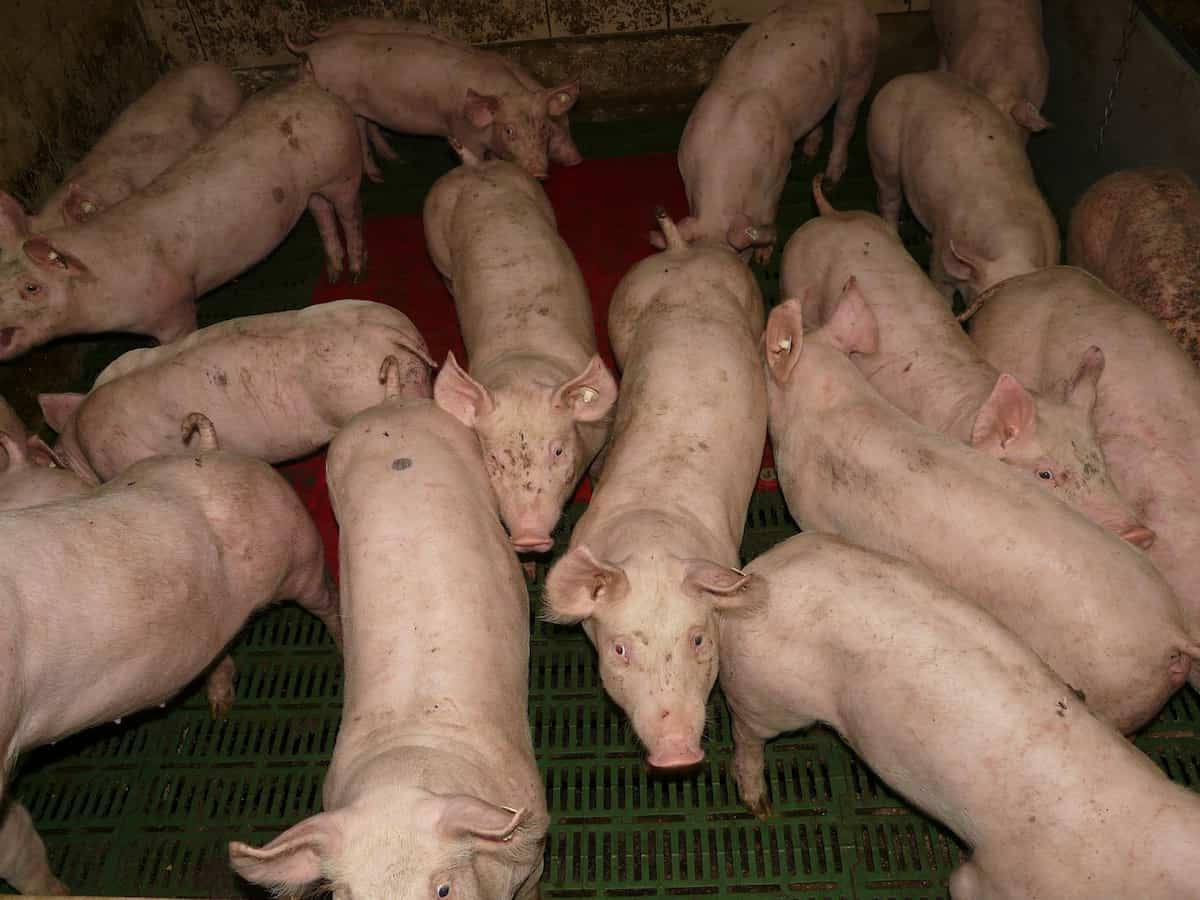
Tips on raising pigs in Nigeria
- Choose the right breed of Pig for your climate and conditions. There are many pig breeds; not all will do well in every climate or situation. Do some research to find the best breed for your particular circumstances.
- Provide plenty of space for your pigs to roam and exercise. Pigs need room to move around, and if they’re confined to a small space, they can become unhealthy and unhappy.
- Feed your pigs a healthy diet. Pigs require a balanced diet of proteins, carbohydrates, fats, vitamins, and minerals. You can either grow your food for them or purchase commercial pig feed from a local supplier.
- Keep your pigs clean and free from parasites. Regularly clean their living quarters and provide them with fresh water daily. Also, check them for parasites such as worms and ticks, and treat them accordingly if necessary.
- Have realistic expectations about profits. Building a successful pig farming operation takes time, so don’t expect to make huge profits overnight.
Pig production methods in Nigeria
Nigeria has a thriving pig farming industry, with many farmers using traditional methods to raise their pigs. However, it has been an increase in the use of more modern production methods, such as intensive pig farming. Intensive pig farming is animal husbandry that involves keeping pigs in confined spaces and providing them with a controlled environment. This method of pig production typically uses less land and labor than traditional methods and can be more efficient and profitable.
However, intensive pig farming can also negatively impact the health and welfare of pigs. For example, pigs kept in intensively farmed conditions may have increased stress and anxiety levels, which can lead to health problems. Therefore, if you are considering starting a pig farm in Nigeria, it is important to research the different production methods available and choose the best method for you.
New technologies in Pig farming in Nigeria
There have been many advances in technology that have made pig farming more efficient and productive. In Nigeria, some of these new technologies include:
Automatic feeders
These feeders dispense a set amount of feed at regular intervals so that the pigs are always well-fed and don’t have to compete for food.
Temperature-controlled housing
This ensures that the pigs are comfortable and extreme temperatures do not stunt their growth.
Genetic selection
By using genetic selection, farmers can choose pigs with desirable traits such as high productivity or disease resistance.
Vaccines
New vaccines are being developed all the time, which can help protect pigs from diseases.
Better sanitation
Improving farm sanitation standards can help prevent the spread of disease among pigs.
Is Pig farming profitable in Nigeria?
Yes, pig farming is profitable in Nigeria. Pigs are a valuable source of food and income, and they can be raised in various ways. However, like any business, there are some risks involved in pig farming. The most important thing to remember is to research and talk to experienced farmers before you start.
In case you missed it: Pig Farming in France: Breeds, How to Start
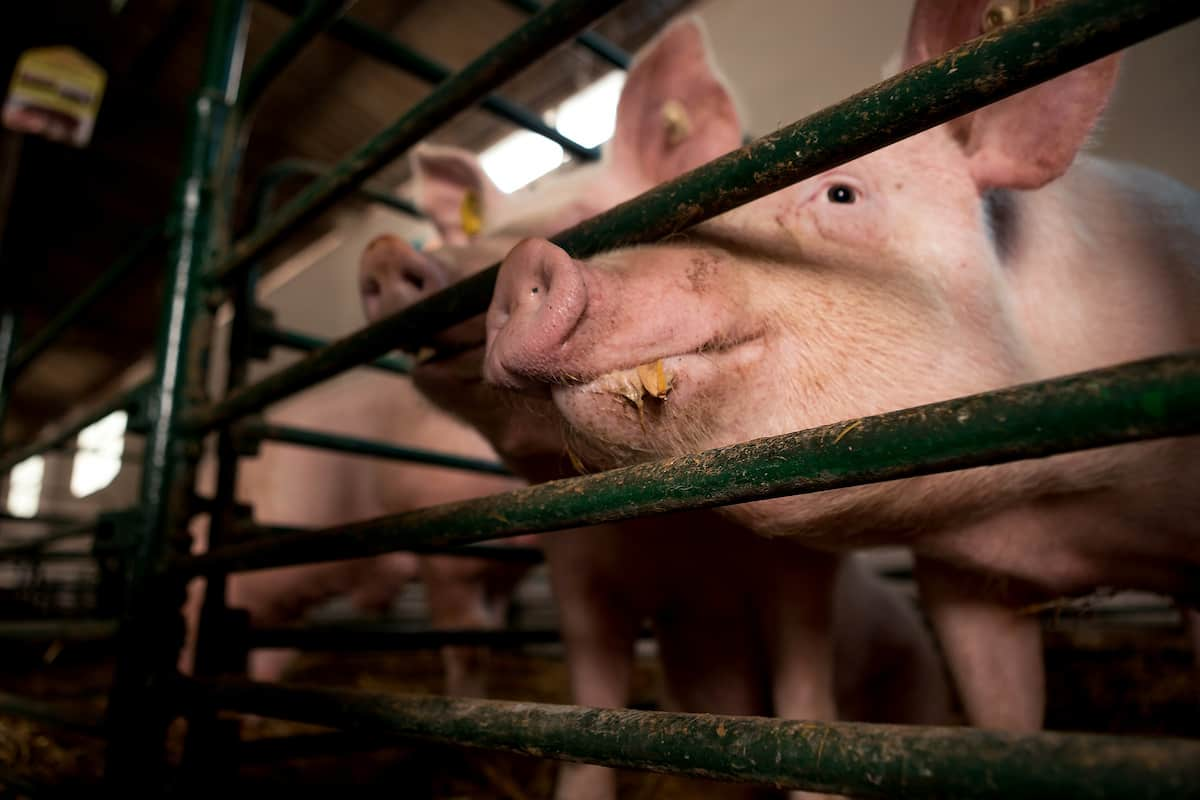
Steps to start Pig farming business plan in Nigeria
Research the market and choose your niche
Pig farming has different aspects, such as breeding, rearing, or selling pork products. Choose the area you want to focus on and research the corresponding market.
Create a business plan
This will help map your goals, start-up costs, and operating expenses.
Get the necessary financing
You must invest in infrastructures, such as housing and fencing, and purchase pigs. Consider applying for a loan or grant to help with start-up costs.
Find a suitable location
Pigs require a lot of space, so you will need to find a farm or piece of land that can accommodate them. Ensure the location has access to water and is relatively isolated to minimize noise complaints from neighbors.
Build housing and pens
Pigs need somewhere to sleep, eat, and exercise. Housing can be either temporary (such as straw bales) or permanent (such as concrete). Fencing is also necessary to keep pigs contained.
Pig farming areas in Nigeria
Today, pigs are raised all over the country, but most farms are located in the southern states of Osun and Oyo.
- Lagos: Lagos is one of the most populated cities in Nigeria, and as such, there is a large demand for pork products. There are several pig farms located in and around Lagos, which supply the city with fresh pork.
- Abuja: It is the capital city of Nigeria, and like Lagos, there is a high demand for pork products. There are several pig farms located in and around Abuja, which supply the city with fresh pork.
- Kano: Kano is another populous city in Nigeria, and there is also a high demand for pork products. There are several pig farms located in and around Kano, which supply the city with fresh pork.
Cost of starting a pig farm business in Nigeria
The cost of starting a pig farming business in Nigeria can change depending on the size of the operation. A small-scale farm may cost between N20,000 and N50,000 to set up, while a large-scale commercial farm could cost upwards of N1 million. The main costs associated with setting up a pig farm include the purchase of pigs, the construction of housing and pens, and the purchase of feed and other supplies. In addition, the cost of land, buildings, and equipment must be considered. The price of pigs and feed must also be considered. Additionally, the cost of labor and other operating expenses must be considered.
Care and management of pig farming in Nigeria
One of the important aspects of successfully raising pigs is providing them with proper care and management. It is important to provide your pigs with a clean and comfortable environment. Pigs are very clean animals and will not do well in an unclean or cramped space. Make sure their housing is spacious and has plenty of ventilation. The flooring must be made of clean material. Pigs require access to fresh water. They will drink a lot of water, so it is important to have a constant supply available.
You can use a trough or bucket to provide them with water. It is an excellent idea to add some electrolyte solution to their water to help prevent dehydration. Pigs require a balanced diet to stay healthy and grow properly. They should have access to fresh vegetables, fruits, grains, and high-quality pig feed. You can purchase commercial pig feed from many different sources, but it is important to ensure it is nutritionally complete. It would help if you also supplement their diet with minerals and vitamins.
In case you missed it: Pig Farming in New Zealand: Breeds, How to Start
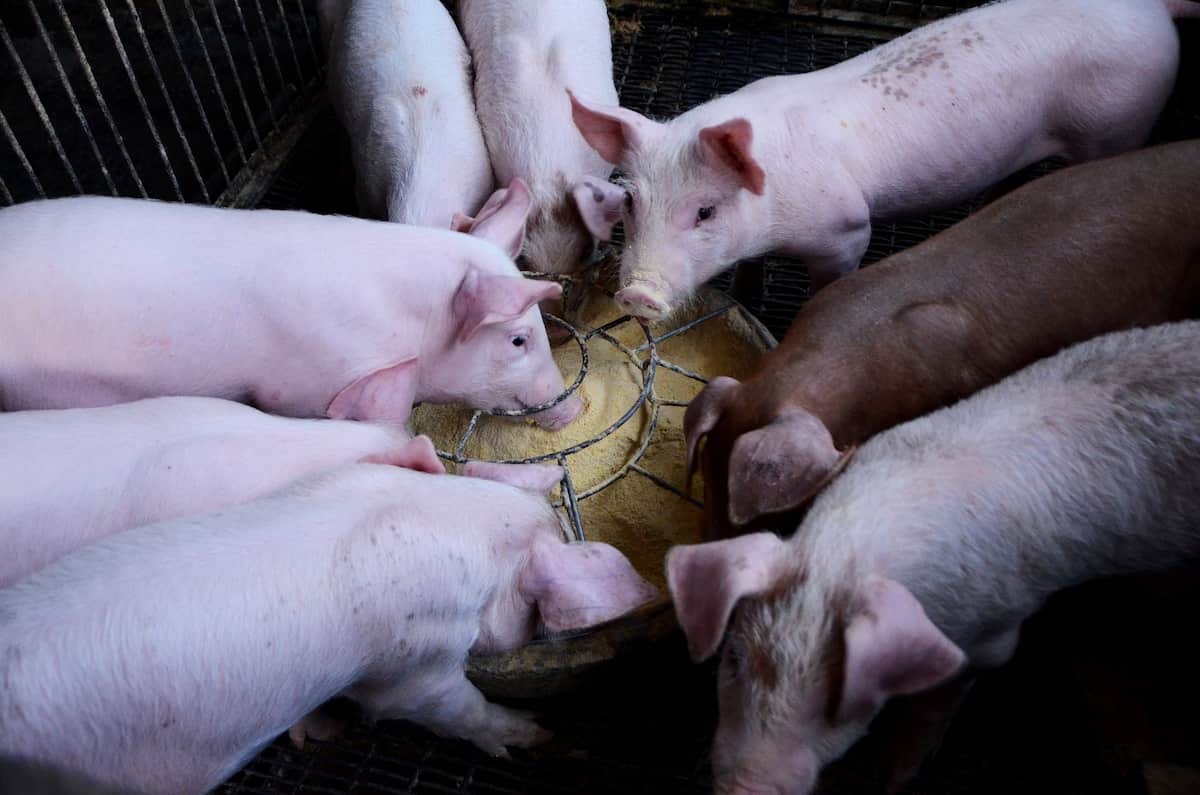
Pig farming loans and subsidies in Nigeria
Several government programs offer financial assistance to farmers in Nigeria who want to start or expand their pig farming businesses. The Agricultural Development Program (ADP) offers loans and subsidies for various agricultural activities, including pig farming. The National Agricultural Insurance Scheme (NAIS) also provides insurance coverage for farmers against losses due to natural disasters or other unforeseen events.
Other financial assistance programs for pig farmers in Nigeria include the Piggery Development Fund (PDF), administered by the Nigerian livestock development authority (NLDA). PDF provides loans at preferential interest rates to help farmers purchase pigs, construct pens and other infrastructure, and train in modern pig production practices.
Housing for commercial pig farming in Nigeria
There are several things to remember when choosing to house commercial pig farming in Nigeria. The climate is hot and humid, so the housing needs to be well-ventilated. The pigs also need access to clean water and plenty of space to move around. One option for housing is to build a shed with walls made of block or concrete and a metal roof. The floor can be concrete or dirt. The shed should have two doors for ventilation, one at each end. The pigs should have access to a small paddock or pen outside the shed to exercise and get fresh air.
Another option is to keep the pigs in an enclosed area inside a larger building, such as a barn. The floors and walls can be made of concrete or wood. There should be windows for ventilation, and the pigs should have access to a larger exercise area outside the building. No matter what type of housing you choose, it is important that it is clean and free of debris. The pigs need a clean environment to stay healthy and productive.
Pig farm problems in Nigeria
Pig farming in Nigeria is an increasingly popular livelihood, but it comes with several challenges. One of the biggest problems faced by pig farmers is the lack of access to quality feed. This often leads to pigs becoming malnourished and sick, reducing their productivity and profitability. Another major problem facing pig farmers in Nigeria is the high cost of inputs. Pigs require a lot of food and water and must be vaccinated regularly to prevent disease outbreaks.
These costs can be prohibitive for small-scale farmers, who often struggle to profit even when their pigs are healthy. The last problem we will discuss is the issue of waste management. Because pigs produce a large amount of waste, farmers must have a system to deal with this waste properly. Unfortunately, many Nigerian pig farms do not have adequate waste management systems, which can lead to pollution and public health concerns.
Pig farming challenges in Nigeria
There are some challenges associated with pig farming in Nigeria, however. The main challenge is disease control, as pigs are susceptible to various diseases which can cause significant losses. Disease control requires good management practices and access to vaccines and other treatment options.
There is also the challenge of marketing, as most Nigerians are unfamiliar with pork products, and there is limited infrastructure for transporting and processing pork products. However, these challenges can be overcome with proper planning and support from the government and private sector.
In case you missed it: Pig Farming in Switzerland: Breeds, How to Start
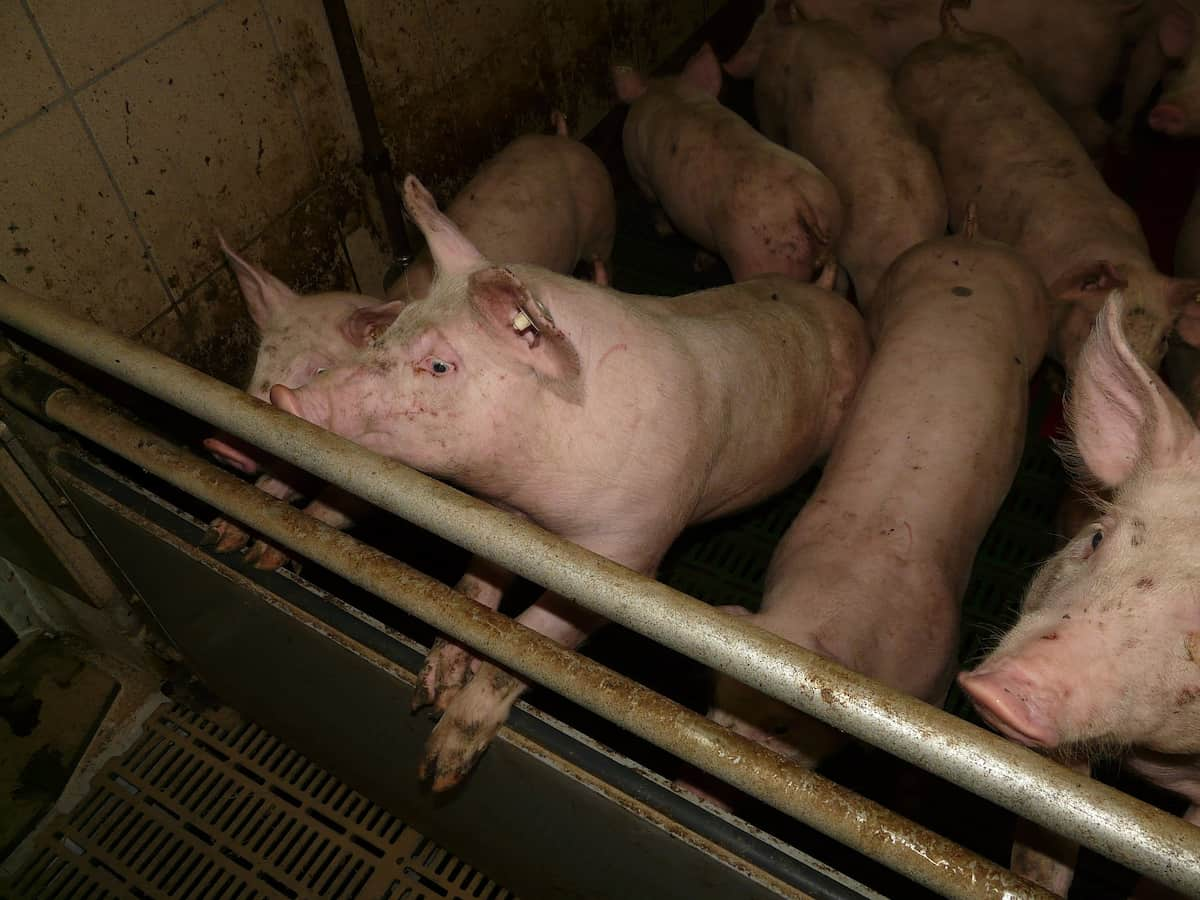
Another challenge is access to veterinary care. Pigs are susceptible to several diseases, so farmers must have access to veterinarians who can treat sick animals. Finally, African swine fever and foot-and-mouth disease are endemic in Nigeria and can cause devastating losses for pig farmers.
Despite these challenges, small-scale pig farmers in Nigeria can make a living from their farms. Pigs are relatively easy animals to take care of and reproduce quickly, so farmers can make money from selling piglets or pork products. In addition, pigs can be used for other purposes, such as fertilizer production, providing additional income streams for small-scale farmers.
Conclusion
Pig farming in Nigeria can be a very lucrative business. Pigs are easy to care for and reproduce quickly, making them a good investment for small-scale farmers. It is a major source of food and income for many smallholder farmers and plays a significant role in the economy. Commercial pig farming is now becoming more popular, as there is demand for pork products from both the local and export markets.
- Economical Aquaculture: A Guide to Low-Budget Fish Farming
- 15 Common Planting Errors That Can Doom Your Fruit Trees
- How to Make Houseplants Bushy: Effective Tips and Ideas
- Innovative Strategies for Boosting Coconut Pollination and Yield
- Pollination Strategies for Maximum Pumpkin Yield
- The Complete Guide to Chicken Fattening: Strategies for Maximum Growth
- Natural Solutions for Tulip Problems: 100% Effective Remedies for Leaf and Bulb-Related Issues
- Revolutionizing Citrus Preservation: Towards a Healthier, Greener Future
- Natural Solutions for Peony Leaf and Flower Problems: 100% Effective Remedies
- Maximizing Profits with Avocado Contract Farming in India: A Comprehensive Guide
- Natural Solutions for Hydrangea Problems: 100% Effective Remedies for Leaf and Flowers
- The Ultimate Guide to Choosing the Perfect Foliage Friend: Bringing Life Indoors
- From Sunlight to Sustainability: 15 Ways to Use Solar Technology in Agriculture
- The Ultimate Guide to Dong Tao Chicken: Exploring from History to Raising
- The Eco-Friendly Makeover: How to Convert Your Unused Swimming Pool into a Fish Pond
- Mastering the Art of Delaware Chicken Farming: Essentials for Healthy Backyard Flocks
- 20 Best Homemade Fertilizers for Money Plant: DIY Recipes and Application Methods
- How to Craft a Comprehensive Free-Range Chicken Farming Business Plan
- Brighten Your Flock: Raising Easter Egger Chickens for Beauty and Bounty
- How to Optimize Your Poultry Egg Farm Business Plan with These Strategies
- Subsidy for Spirulina Cultivation: How Indian Government Schemes Encouraging Spirulina Farmers
- Ultimate Guide to Raising Dominique Chickens: Breeding, Feeding, Egg-Production, and Care
- Mastering the Art of Raising Jersey Giant Chickens: Care, Feeding, and More
- Ultimate Guide to Raising Legbar Chickens: Breeding, Farming Practices, Diet, Egg-Production
- How to Raise Welsummer Chickens: A Comprehensive Guide for Beginners
- How to Protect Indoor Plants in Winter: A Comprehensive Guide
- Ultimate Guide to Grow Bag Gardening: Tips, Tricks, and Planting Ideas for Urban Gardeners
- Guide to Lotus Cultivation: How to Propagate, Plant, Grow, Care, Cost, and Profit
- Agriculture Drone Subsidy Scheme: Government Kisan Subsidy, License, and How to Apply Online
- Ultimate Guide to Raising Araucana Chickens: Breed Profile, Farming Economics, Diet, and Care
- Bringing Hydroponics to Classroom: Importance, Benefits of Learning for School Students
- Ultimate Guide to Raising Polish Chickens: Breed Profile, Farming Economics, Diet, and Care
- Ultimate Guide to Raising Australorp Chickens: Profile, Farming Economics, Egg Production, Diet, and Care
- Silkie Chicken Farming: Raising Practices, Varieties, Egg Production, Diet, and Care
- Sussex Chicken Farming: Raising Practices, Varieties, Egg Production, Diet and Care
- Homemade Feed Formulations for Livestock: Discover Cost-effective Starter to Finisher Feed Recipes
I would like to know how to apply for the grant or loan to kick start my pig farm and also training as suggested in your write-up.
I will like to apply for the loan so I can can start my own piggry and also for the training pls
Many thanks for this invaluable information. I need to know more about starting pigry on an hall plot of land, what’s the ideal number of cubicles to build on half plot of land?
I will appreciate if you can give me the production in pig and idea of cost of sales in Nigeria.
I will like to apply for loan for me to start the pig businesses iin Abuja here please sir help me
How can I get a business plan? I already have a land in a very good ad accessible location In Badagry, Lagos